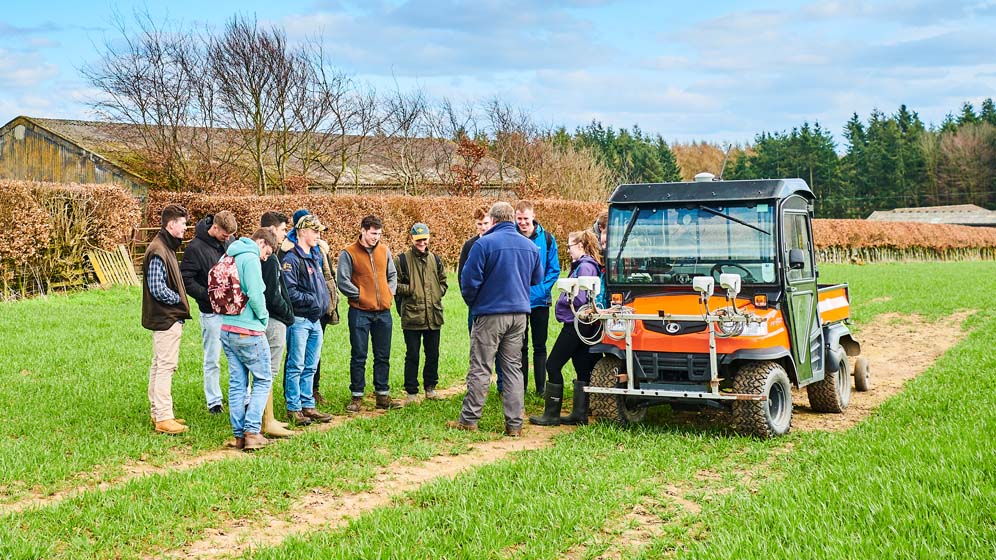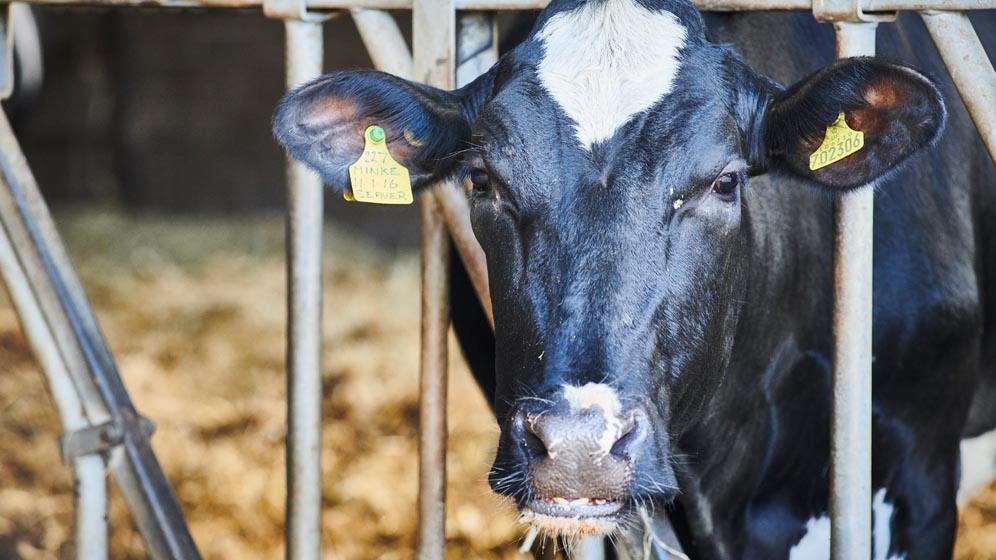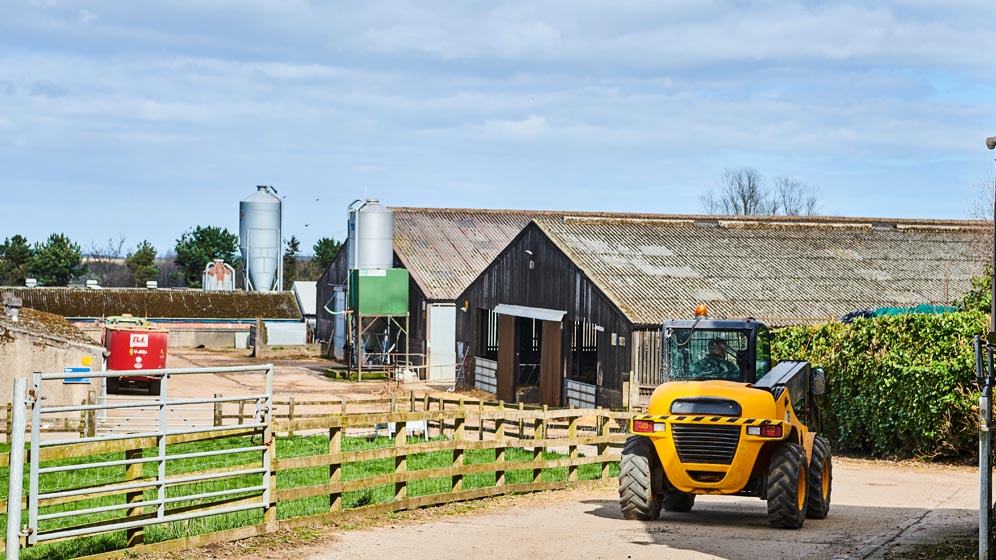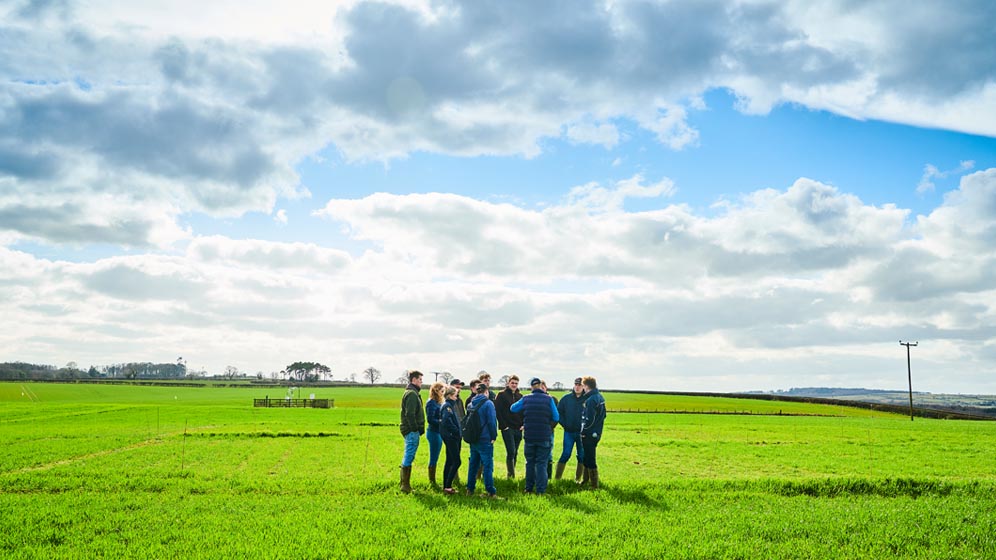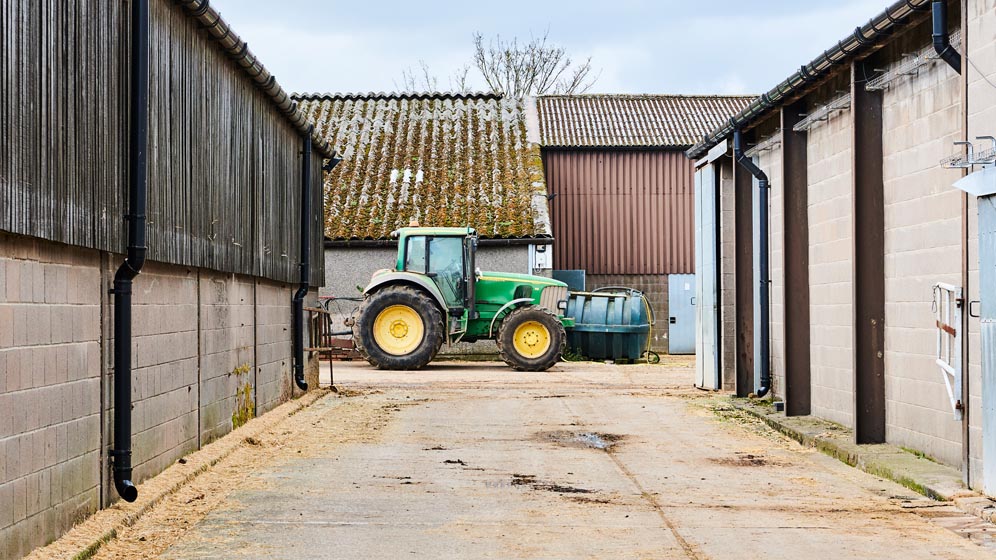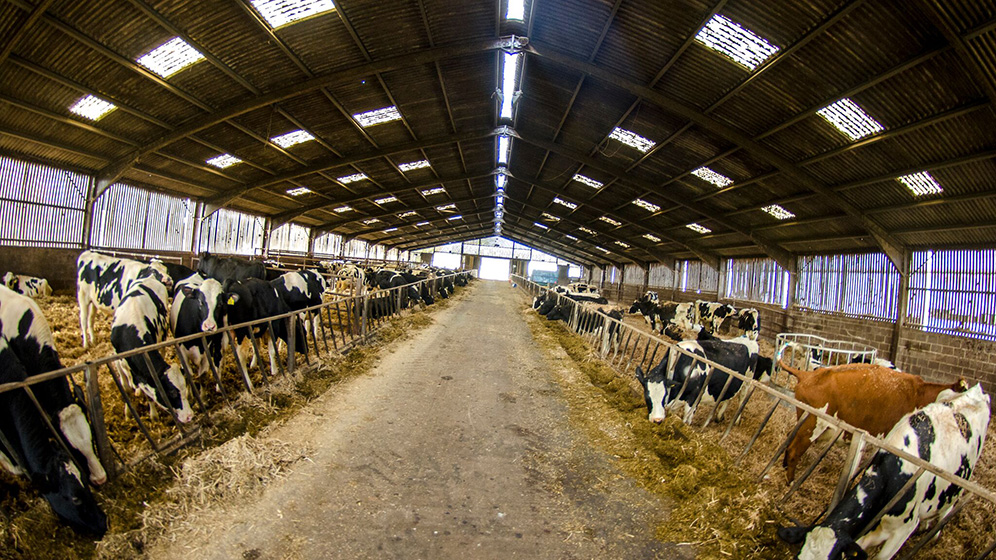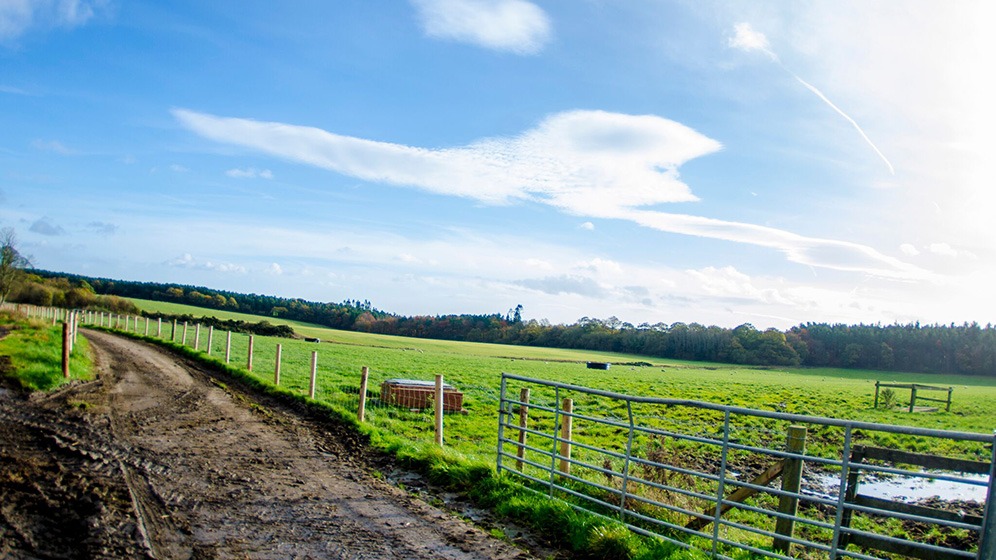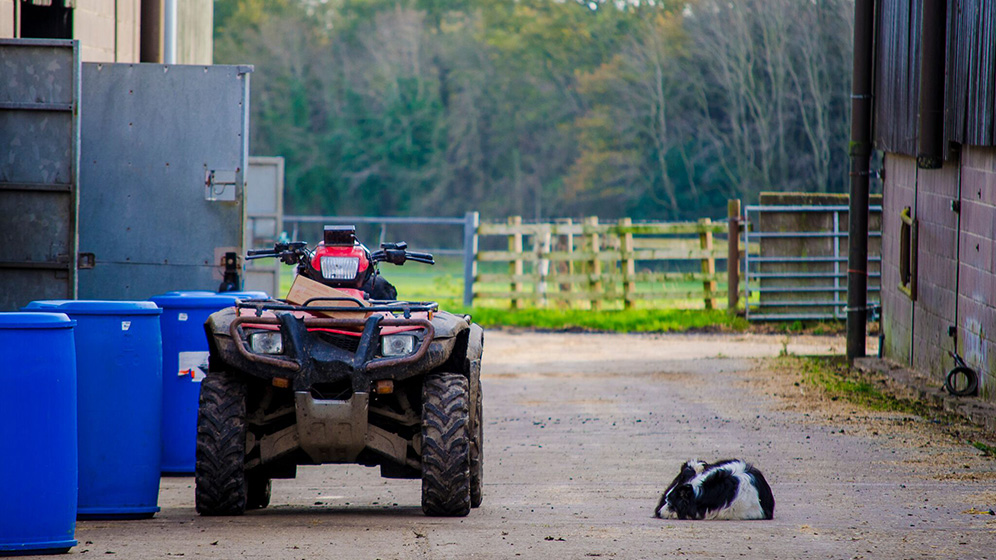Sustainable Land and Business Management BSc Honours
- UCAS code: D455
- Full time
- 3 years
This degree explores countryside management from a wide variety of perspectives, to equip you with a balanced overview of the competing interests on the countryside.
You are currently viewing course information for entry year: 2026
Next start date:
- September 2026
UCAS Institution name and code:
- NEWC / N21
Course overview
Your degree integrates elements from a range of subjects such as geography, business and estate management, ecology, law, agriculture, economics, and wildlife conservation and management. Topics include:
- rural development
- environmental and business management
- sustainability
- agriculture and land management
Newcastle is an ideal place to study, combining a city-centre university with access to fantastic countryside for fieldwork.
You can boost your employability and professional skills with an optional placement year in the industry or the commercial sector. You also benefit from:
- access to our two University farms for hands-on experience
- expertise at our Centre for Rural Economy, recipient of the Queen's Anniversary Prize for Higher and Further Education in 2014
Your course and study experience - disclaimers and terms and conditions
Please rest assured we make all reasonable efforts to provide you with the programmes, services and facilities described. However, it may be necessary to make changes due to significant disruption, for example in response to Covid-19.
View our Academic experience page, which gives information about your Newcastle University study experience for the academic year 2025-26.
See our terms and conditions and student complaints information, which gives details of circumstances that may lead to changes to programmes, modules or University services.
Quality and ranking
Professional accreditation and recognition
All professional accreditations are reviewed regularly by their professional body.
Modules and learning
Modules
The information below is intended to provide an example of what you will study.
Most degrees are divided into stages. Each stage lasts for one academic year, and you'll complete modules totalling 120 credits by the end of each stage.
Our teaching is informed by research. Course content may change periodically to reflect developments in the discipline, the requirements of external bodies and partners, and student feedback.
Optional module availability
Student demand for optional modules may affect availability.
Full details of the modules on offer will be published through the Programme Regulations and Specifications ahead of each academic year. This usually happens in May.
To find out more please see our terms and conditions
Stage 1 will lay the foundation for examining sustainable land management problems.
You'll be introduced to a range of topics including rural development, sustainability, environmental management, agriculture, economics, business management and marketing,
geographical information systems, and plant science.
You’ll also visit different sites across the region. This will help you get practical experience in land management.
Modules
| Compulsory Modules | Credits |
|---|---|
| Introduction to Business Management | 10 |
| Agri-Food Supply Chains | 10 |
| Sustainability in Practice | 20 |
| Introductory Business Economics | 10 |
| Academic and Professional Skills | 20 |
| Introduction to Sustainability | 20 |
| Plants, Environment, Agriculture | 10 |
| Optional Modules | Credits |
|---|---|
| Mapping the Earth: Location and Space | 20 |
| Introduction to Marketing and Consumer Behaviour | 20 |
During this stage, you'll study more specialised topics in: sustainable land and business management, wildlife management, land law, research methods,
sustainable business practice, management planning and countryside heritage.
You’ll also have a choice of optional modules to choose from.
Modules
| Compulsory Modules | Credits |
|---|---|
| Law and Land Use | 10 |
| Landscape, Culture and Heritage | 20 |
| Site Management Planning | 20 |
| Qualitative Research Methods | 10 |
| Dissertation and Research Preparation | 10 |
| Sustainable Solutions | 10 |
You'll study countryside management, environmental economics, and rural planning and politics.
You'll also work on a research project. Recent projects have investigated:
- renewable energy production
- game management
- countryside tourism
- future-proofing rural estates
- agri-environment policy
- wildlife conservation
Modules
| Compulsory Modules | Credits |
|---|---|
| Countryside Management | 20 |
| Planning the Global Countryside | 20 |
| Dissertation | 30 |
| Sustainable Development and Environmental Valuation | 10 |
We base these figures and graphs on the most up-to-date information available to us. They are based on the modules chosen by our students in 2024-25.
Teaching time is made up of:
- scheduled learning and teaching activities. These are timetabled activities with a member of staff present.
- structured guided learning. These are activities developed by staff to support engagement with module learning. Students or groups of students undertake these activities without direct staff participation or supervision
Teaching and assessment
Teaching methods
In Stages 1 and 2, you’ll spend half of your teaching time in classroom-based lectures or seminars.
The rest will include:
- field classes
- computer classes
- practical lab work
In Stage 3, we’ll focus more on project work. This is work towards your final-year project, based on a topic of your choice.
Assessment methods
You'll be assessed through a combination of:
-
Assignments – written or fieldwork
-
Dissertation or research project
-
Essays
-
Examinations – practical or online
-
Group work
-
Practical sessions
-
Presentations
-
Projects
Skills and experience
Practical skills
Field trips form an important part of your degree, and give you the opportunity to apply your knowledge in a practical setting.
With easy access to nearby countryside from our location in North East England, you'll benefit from visits to Northumberland, County Durham and Cumbria to experience the varied landscapes and habitats.
Business skills
In your Sustainable Solutions module, you'll help solve a real-world problem for a real organisation. You'll work as a group during this project.
Our Sustainable Business Practice module will give you the skills to compete in a global business environment. You'll learn to balance conventional business objectives with challenges in:
- net-zero
- ethical supply chain management
- sustainable resource use
Research skills
In your final year, you'll work on an in-depth research dissertation. It can be on a subject of your choice. You'll be supervised by an academic staff member.
During stage 2, you will gain skills in qualitative and quantitative research methods to prepare you for your third year project.
Our staff, experts in their field, will support you throughout your degree.
Find out more about our research and the Centre for Rural Economy.
Opportunities
Study abroad
Gain a global perspective, enhance your academic profile and open doors to exciting new experiences by studying abroad for one semester or a full academic year at one of our partner universities overseas. Study abroad usually takes place in stage 3 of your studies and extends your degree by one year.
You'll have the choice to study at a leading international university, including:
- Monash University
- University of Hong Kong
- University of Pittsburgh
You can also opt for short-term global opportunities like summer schools, virtual exchanges or internships that usually take place over the summer months.
Work placement
During your degree you can apply to spend 9 to 12 months on an industry placement, in the UK or abroad. Your work placement is a great opportunity to gain practical experience, acquire key business skills and make industry contacts. You’ll get University support from our dedicated team. Work placements usually take place between Stages 2 and 3 and extend your degree by a year.
Facilities and environment
Facilities
The Agriculture Building is the home of our agri-food business and land management degrees, it is based in the School of Natural and Environmental Sciences and located on our city-centre campus. Located within are state-of-the-art facilities including our test kitchen and the award-winning Centre for Rural Economy.
During your studies, you'll have access to two commercial farms, Cockle Park Farm and Nafferton Farm, where you can gain practical experience providing you with an insight into how real-world farms operate. Our farms are used for learning, demonstration and research. At NU Farms we promote innovation to shape policy and support scientific research. We collaborate with four key partners:
- Centre for Crop Health and Protection (CHAP)
- Centre for Innovation Excellence in Livestock (CIEL)
- Fera Science (Fera)
- Linking Environment and Farming (LEAF)
You'll also gain hands-on experience with industry-standard software to prepare you for your future career.
Support
We take your health and wellbeing seriously and are committed to supporting you throughout your studies so you can fulfil your potential at university. This support includes:
- a personal tutor who is an academic member of staff who can help you with academic and personal issues throughout your degree
- a peer mentor scheme which pairs you with a current student from your course to help you navigate your first year at university
- a staff-student committee, to give you an opportunity to have a say in how your degree works
- support, treatment and guidance on mental and physical health from our wellbeing team
Your future
Our graduates have found jobs in a range of sectors. These include national parks, public bodies, UK wildlife groups, surveyors, and land agents.
Organisations include:
- Natural England
- Met Office
- National Trust
- British Horse Society
- Game & Wildlife Conservation Trust
- Savills
- Brown and Co.
- Galbraiths
- GSC Grays
- Defra
Our graduate careers include:
- chartered surveyors
- rights of way officers
- members of local conservation teams
- agricultural and environmental consultants
- environmental engineers
- national Park rangers
- sustainability officers/advisors
- countryside officers
- estate managers
- environmental educators
Sustainable solutions
Sorry, you need JavaScript to view this video
The Sustainable Solutions module at Newcastle University offers you the opportunity to collaborate with industry professionals on projects that address real-world sustainability challenges. This hands-on experience enhances your problem-solving skills and prepares you for successful careers in sustainability-focused roles.
You'll have many opportunities to interact with industry through:
- guest speakers
- visits
- industry networking events
- opportunities to attend conferences
Careers support
Our Careers Service is one of the largest and best in the country, and we have strong links with employers. We provide an extensive range of opportunities to all students through our ncl+ initiative.
Visit our Careers Service website
Recognition of professional qualifications outside of the UK
From 1 January 2021 there is an update to the way professional qualifications are recognised by countries outside of the UK
Entry requirements
All candidates are considered on an individual basis and we accept a broad range of qualifications.
The entrance requirements and offers below apply to 2026 entry.
| A-Level | |
|---|---|
| International Baccalaureate | |
|---|---|
Other UK and the Republic of Ireland qualifications
Alternative offers at Newcastle
Through one of our contextual or alternative offer routes, you could receive an offer of up to three grades lower than the typical requirements.
Contextual offers
We use certain contextual data from your UCAS form, alongside your application, to consider challenges that you may have faced in your education and the potential effect this may have had on your qualifications. This means you may be eligible to receive a lower contextual offer.
PARTNERS offers
One of the largest and longest support entry routes to university if its kind for students from underrepresented backgrounds. We support applicants from application through to study.
Realising Opportunities offers
A unique programme delivered in collaboration with 10 leading, research-intensive universities in the UK. The programme is open to students in Year 12/first year of college.
Pathways to Newcastle offers
Pathways to Newcastle, our national skills entry route, is available for specific subject areas.
High Performance Athletes
We support promising athletes at the application stage, who compete in regional, national or international levels in their sport.
Qualifications from outside the UK
English Language requirements
Entrance courses (INTO)
International Pathway courses are specialist programmes designed for international students who want to study in the UK. We provide a range of study options for international students in partnership with INTO.
These courses are specifically designed for international students who want to study in the UK and progress onto one of our undergraduate degrees. Our International Study Centre, has a range of study options including:
- International Foundation
- International Year One
- English Language courses
Find out more about International Pathway courses
Admissions policy
This policy applies to all undergraduate and postgraduate admissions at Newcastle University. It is intended to provide information about our admissions policies and procedures to applicants and potential applicants, to their advisors and family members, and to staff of the University.
University Admissions Policy and related policies and procedures
Credit transfer and Recognition of Prior Learning
Recognition of Prior Learning (RPL) can allow you to convert existing relevant university-level knowledge, skills and experience into credits towards a qualification. Find out more about the RPL policy which may apply to this course.
Tuition fees and scholarships
Tuition fees for academic year 2026-2027
The 2026 entry home fees have not yet been confirmed.
| Qualification: BSc Honours | |
|---|---|
|
Home students full time 3 years |
Tuition fees (Year 1)
Not set |
|
International students full time 3 years |
Tuition fees (Year 1)
31,500 |
Year abroad and additional costs
For programmes where you can spend a year on a work placement or studying abroad, you will receive a significant fee reduction for that year.
Some of our degrees involve additional costs which are not covered by your tuition fees.
Scholarships
Find out more about:
Open days and events
You'll have a number of opportunities to meet us throughout the year at our on-campus and virtual open days.
You'll be able to:
- explore our beautiful campus
- find out about our vibrant city
- discover what students think about studying at Newcastle
You'll also have the opportunity to speak to academic staff and find out more about the subjects you're interested in.
Find out about how you can visit Newcastle in person and virtually.
We regularly travel overseas to meet with students interested in studying at Newcastle University. Visit our events calendar to find out when we're visiting your region.
How to apply
Apply through UCAS
To apply for undergraduate study at Newcastle University, you must use the online application system managed by the Universities and Colleges Admissions Service (UCAS). All UK schools and colleges, and a small number of EU and international establishments, are registered with UCAS. You will need:
- the UCAS name and institution codes for Newcastle University (NEWC/N21)
- the UCAS code for the course you want to apply for
- the UCAS 'buzzword' for your school or college
If you are applying independently, or are applying from a school or college which is not registered to manage applications, you will still use the Apply system. You will not need a buzzword.
Apply through UCASApply through an agent
International students often apply to us through an agent. Have a look at our recommended agents and get in touch with them.
Get in touch
By phone
Call us on +44 (0) 191 208 3333 and press option 1. Our opening hours are Monday to Friday 10am until 4pm.
Live chat
Our NCL chatbot might be able to give you an answer straight away. If not, it’ll direct you to someone who can help.
You'll find our NCL chatbot in the bottom right of this page.
Online
Book a one-to-one chat
Book a slot with one of our Sustainable Land and Business Management academic staff for a one-to-one chat about your subject of interest, student experience, and more: Book now
Keep updated
We regularly send email updates and extra information about the University.
Receive regular updates by email





